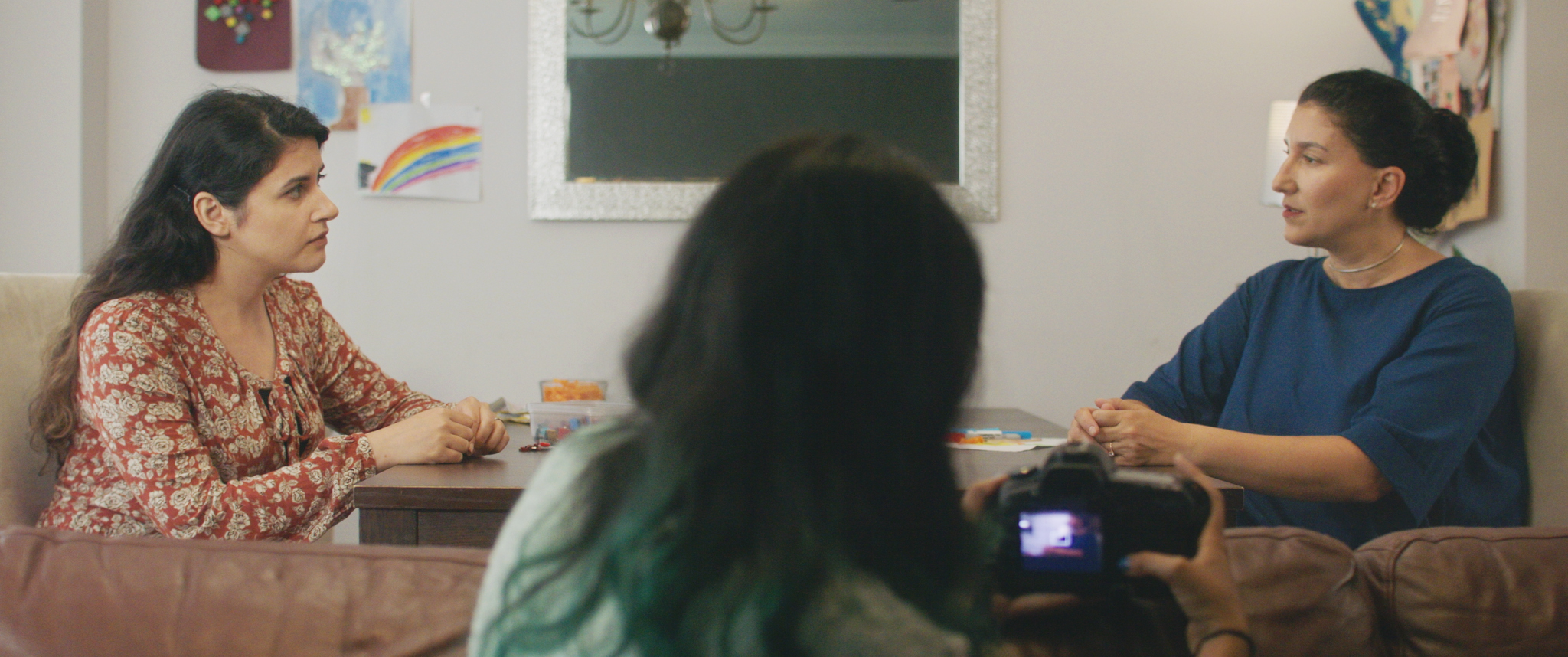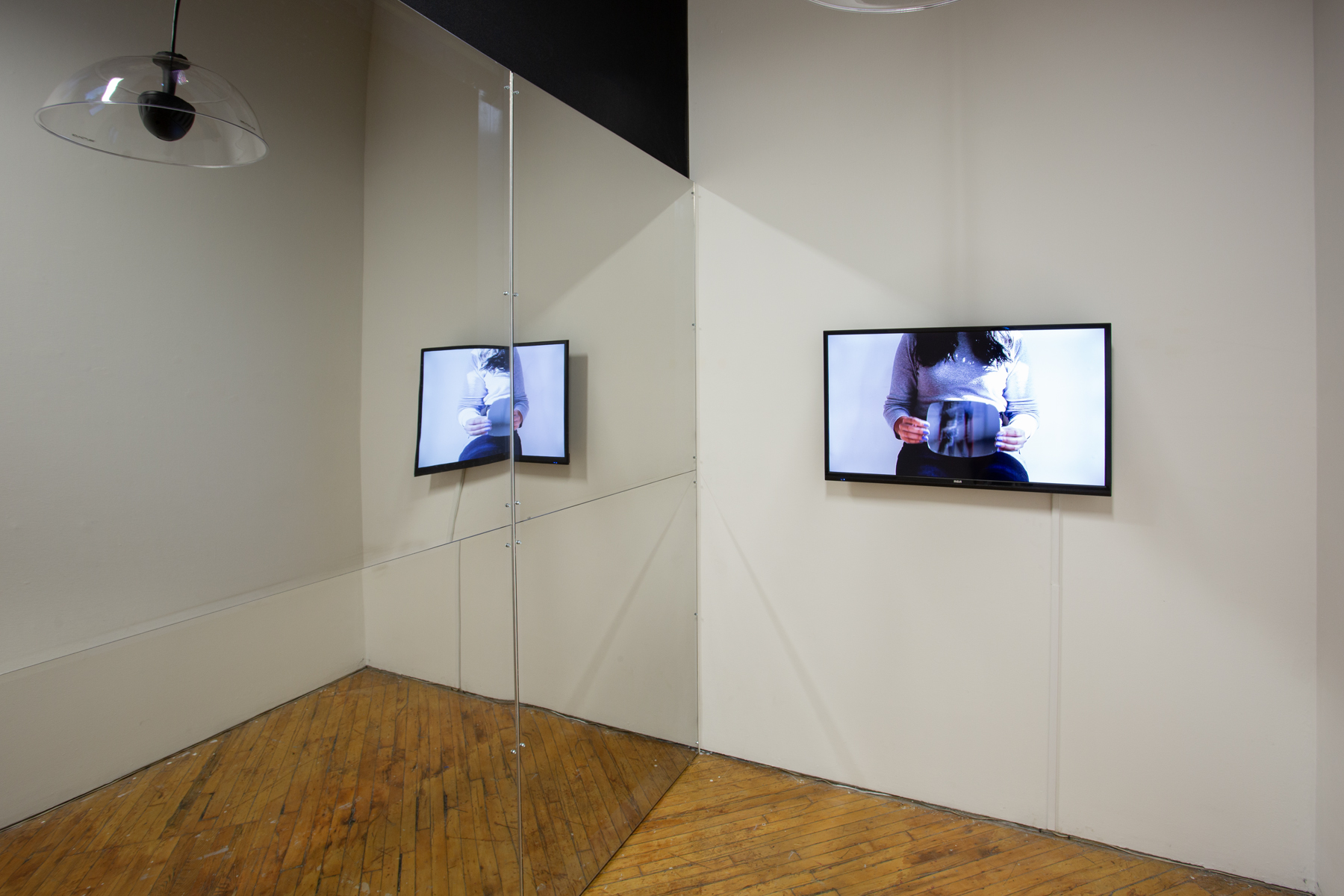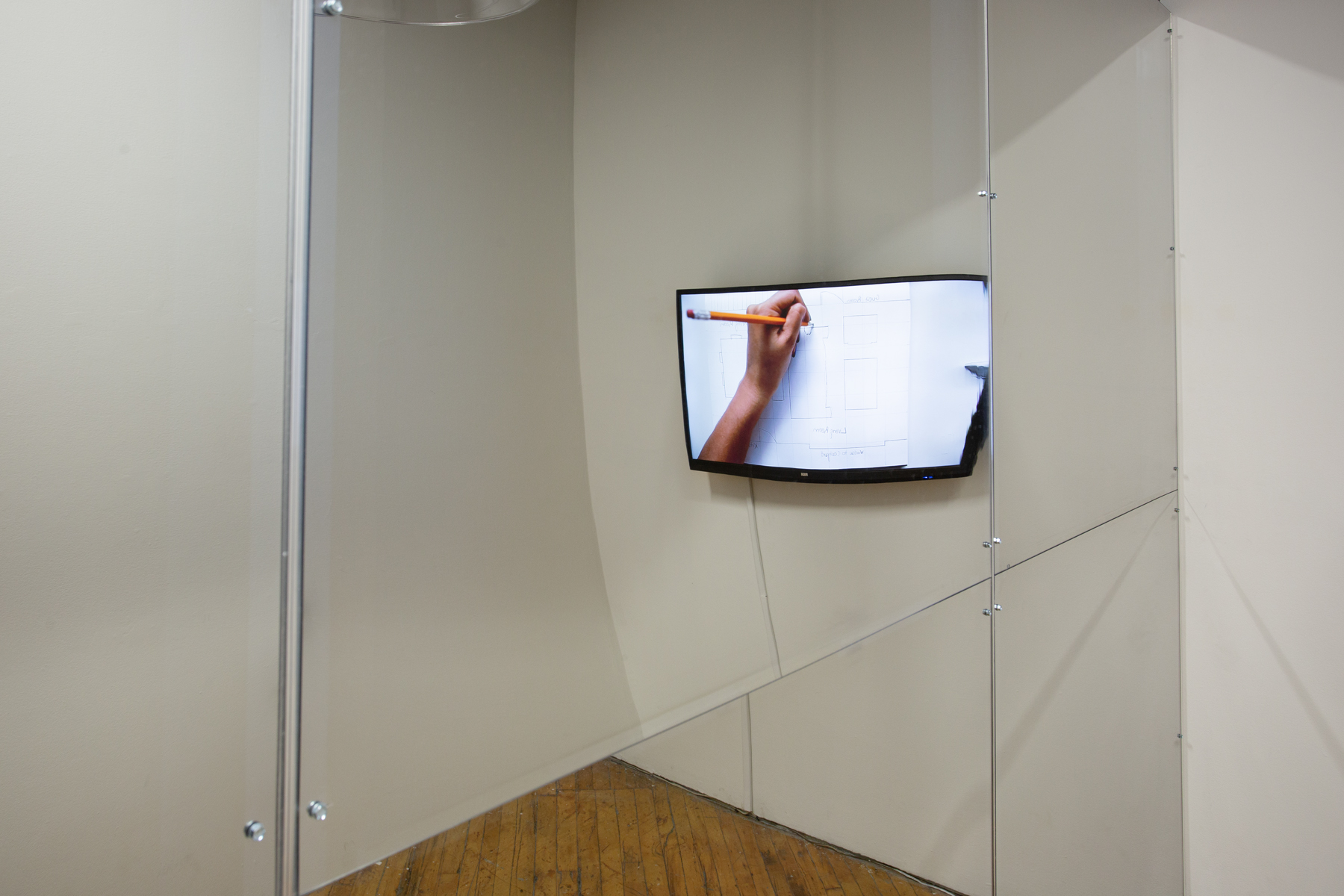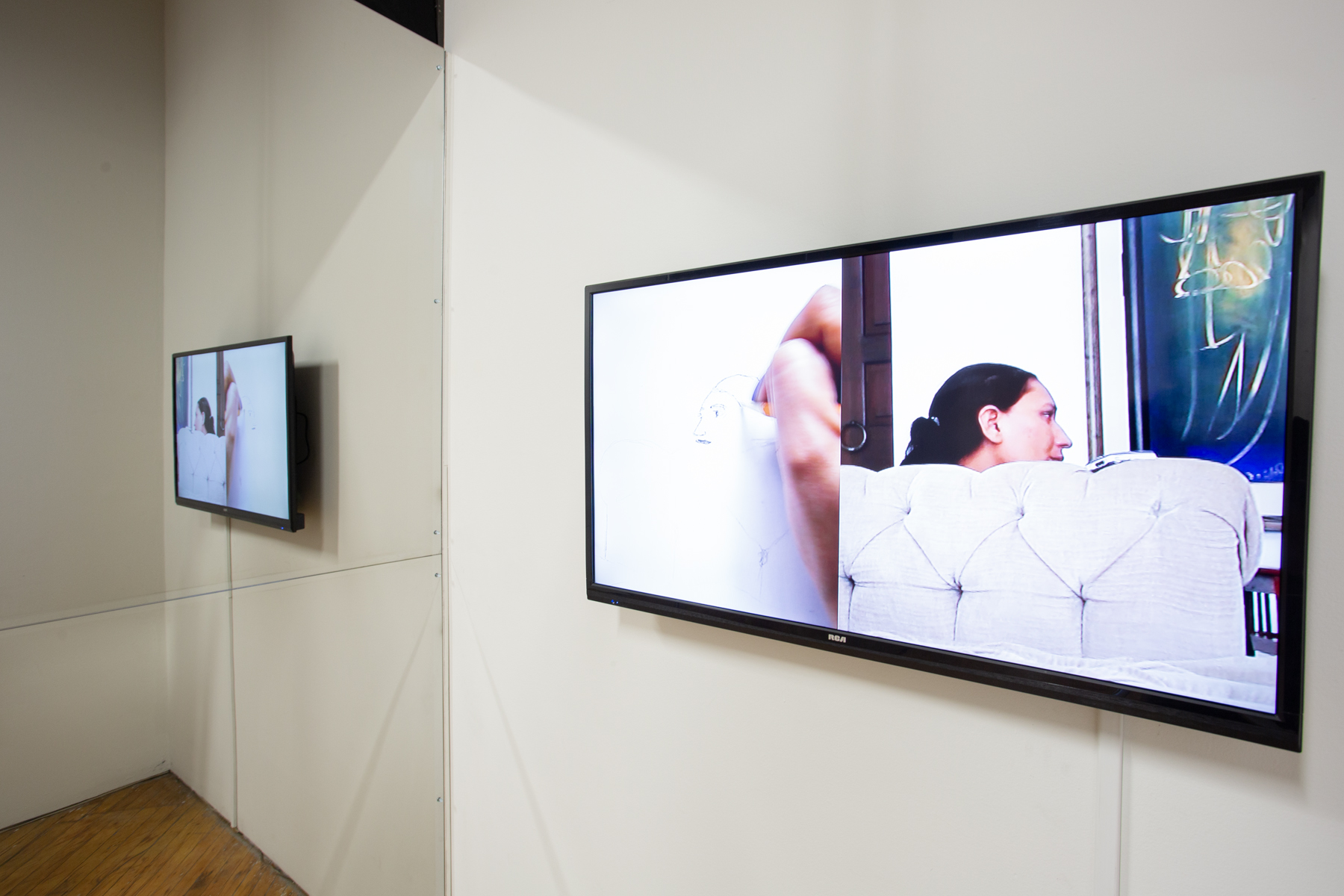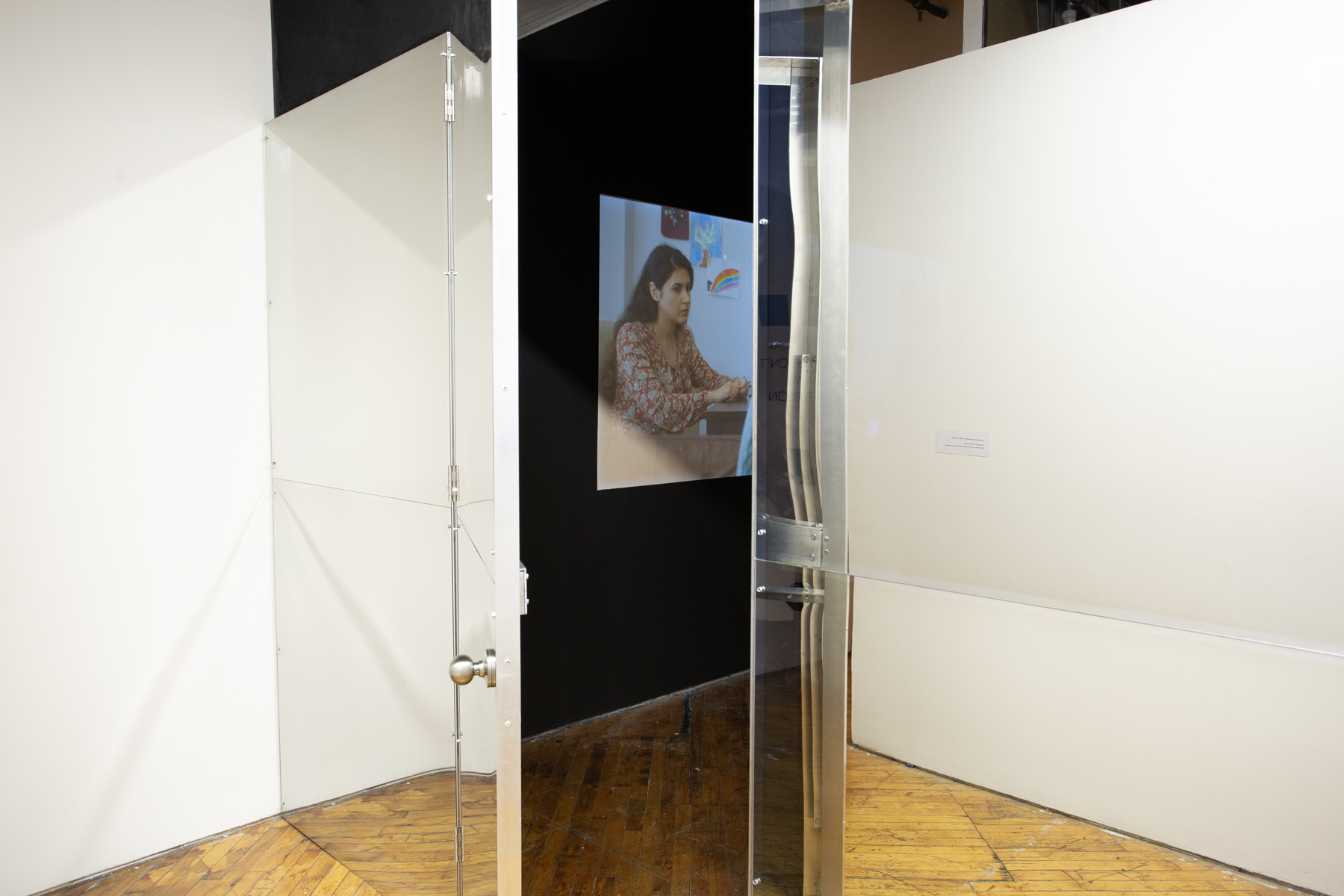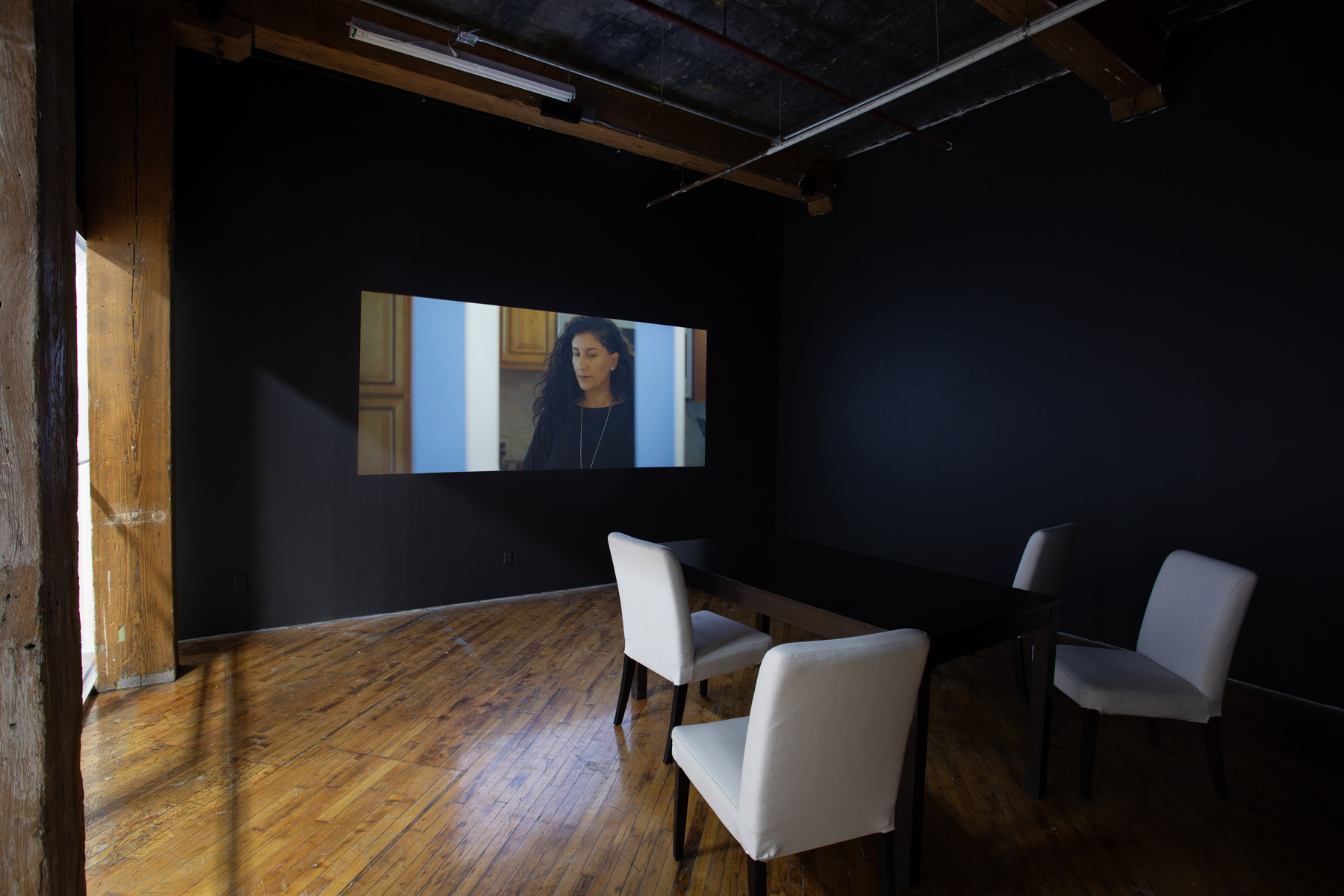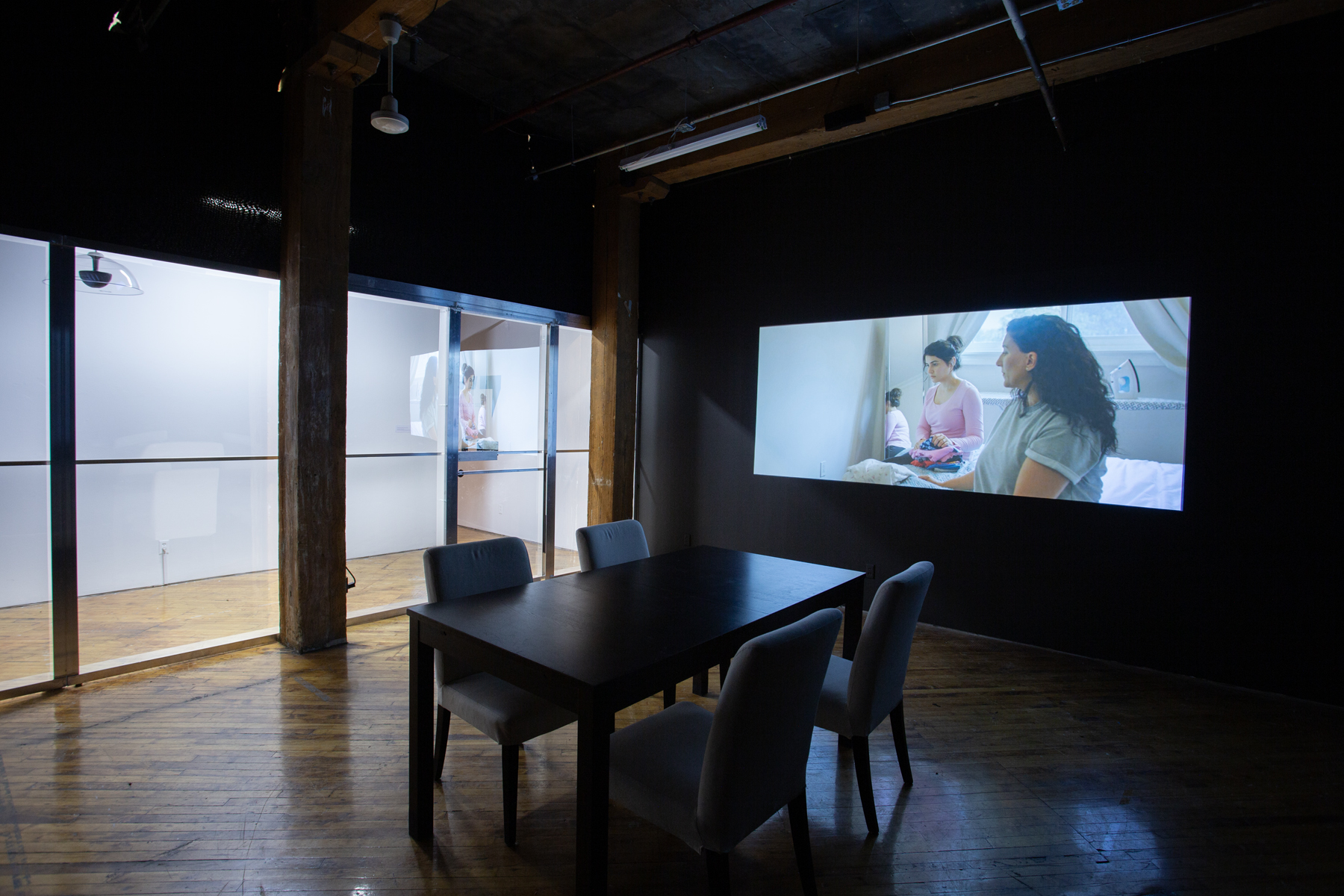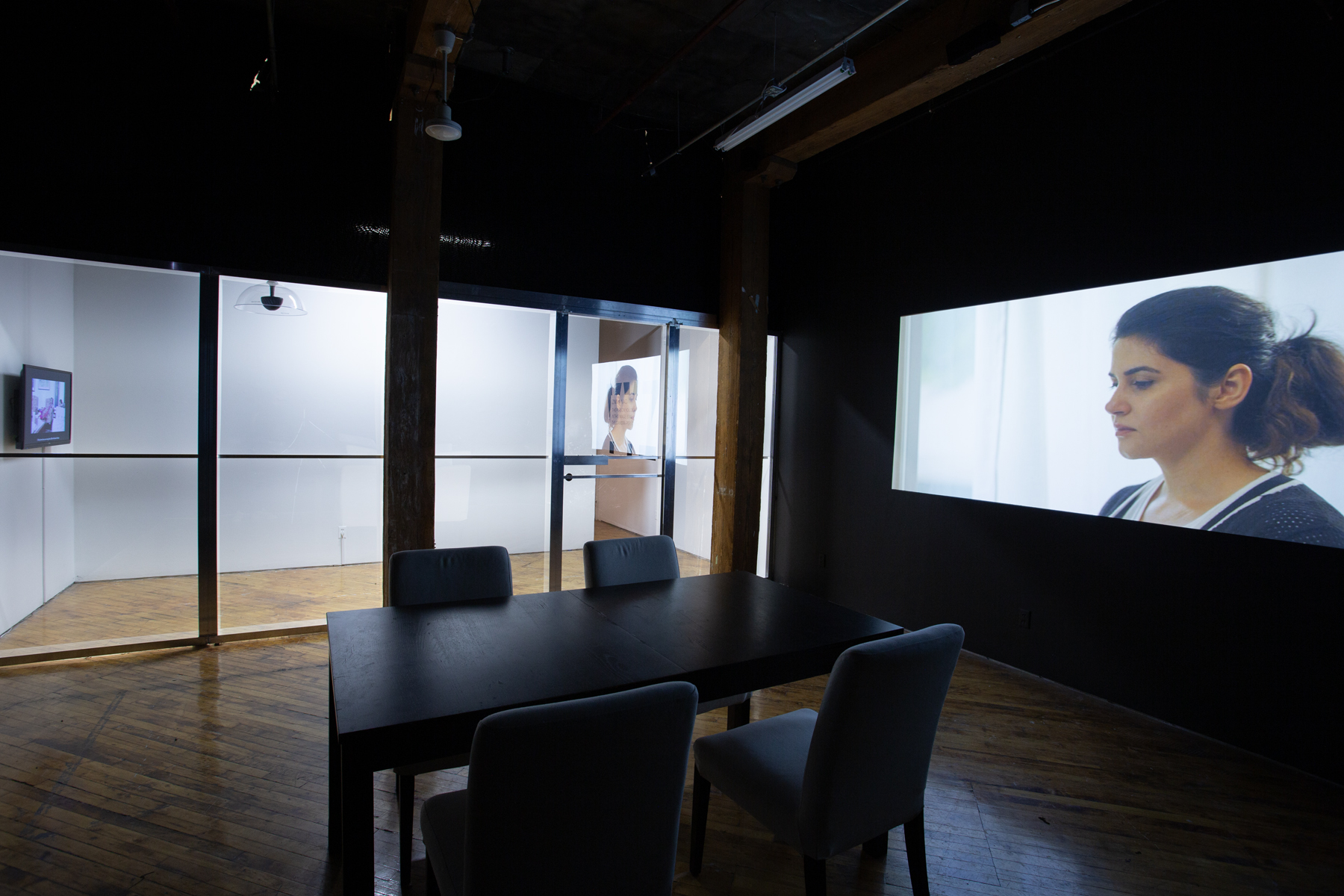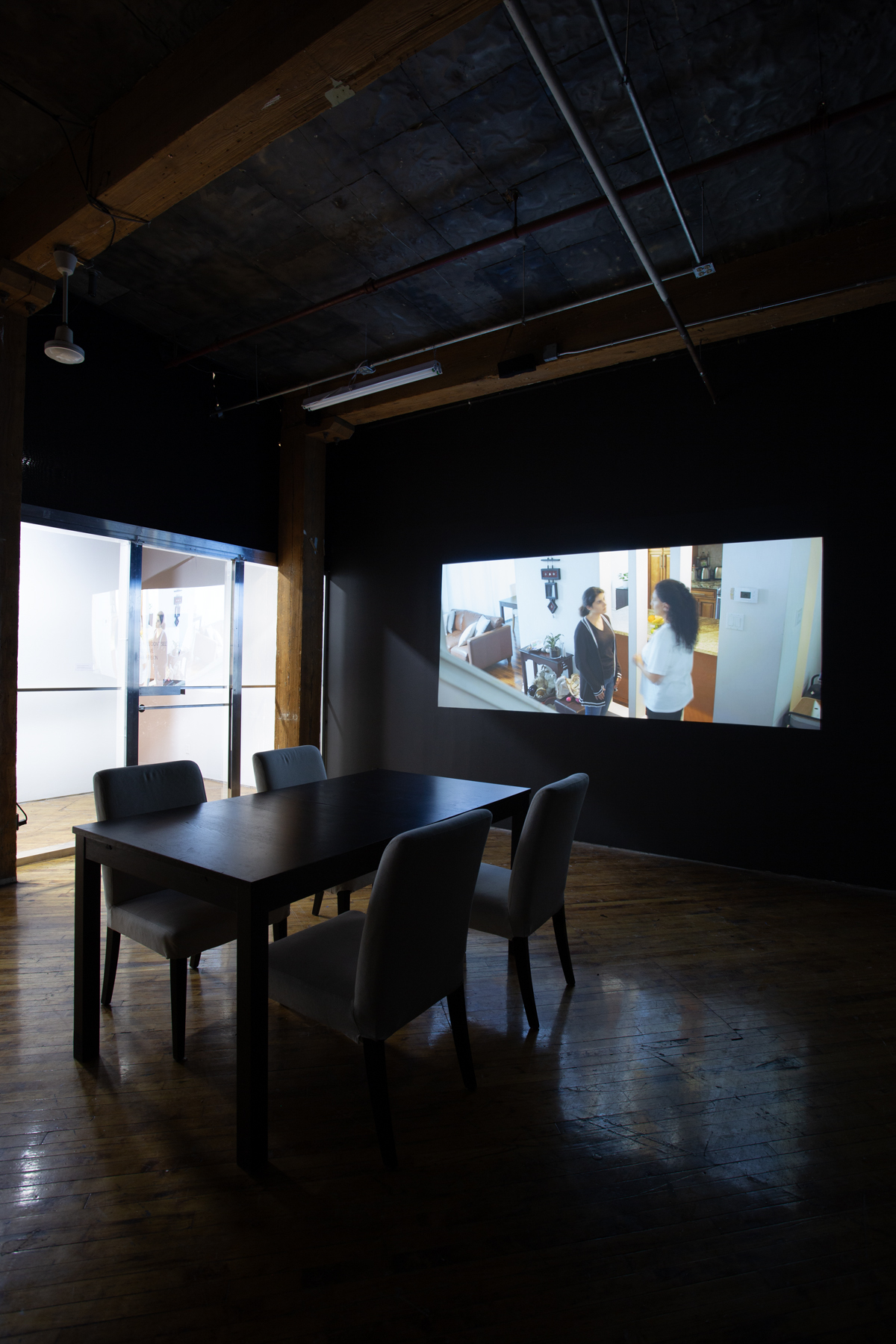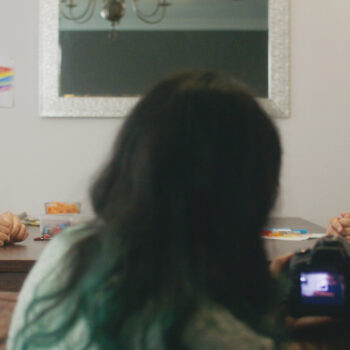This exhibition features two short films, an experimental documentary and a fiction film based on true events. Both films were inspired by footage shot surreptitiously by Zinnia Naqvi during a visit with her family in Karachi, Pakistan, several years ago. The video focuses on an argument between her aunt and the aunt’s domestic worker over financial matters. For many reasons — the ambivalence of the situation, the respective socioeconomic positions of the two women involved in the scene, and the very nature of the recording— these images have long haunted Naqvi.
In The Translation is Approximate, Naqvi retrieves the original footage that she shot in 2014 and traces back her thoughts about what motivated her to revisit this material. This short video both provides insight into her approach and fundamentally questions both the viewer’s relationship with truth and the dilemma between fiction and documentary.
Farzana is, in a way, an augmented reconstruction of the scene that Naqvi originally recorded of her family in Karachi. This film follows the relationship of two middle-aged women and how they navigate their work in the home. Charmaine is a psychotherapist who works from home, and she hires Nasreen as a domestic worker to help her maintain her household. Nasreen is a recent migrant who is dealing with financial precarity. When there is a crisis in Nasreen’s family, she asks for assistance from Charmaine, but lack of trust between the two women results in hostility and conflict. We see all of this through the eyes of Zinnia, Charmaine’s niece who is visiting her aunt and decides to record what she observes secretly.
By slipping into the skin of each character, Naqvi examines the complex politics of social classes, the role of women, and that of domestic work. The more the tension grows, the more detailed the editing of the images and sound becomes, until it blots out the parameters that define the ideas of honesty, truth, and transparency. Ultimately, the film interrogates the part that images play in our comprehension of these concepts. The two films are separated by a wall of one-way mirror to heighten the viewer’s experience of voyeurism while viewing the two works in a single space.
Special thanks to Jordan Prosser, Derek Ho, and Micah Brown for their technical assistance. Post-Production Facilities and support provided by PRIM-Dazibao Production-Dissemination Residency. The artist acknowledges the support of the Canada Council for the Arts.
Documentation by: Allan Kosmajac
Documentation
Artist Bio
Zinnia Naqvi
Zinnia Naqvi (she/her) is a lens-based artist working in Tkaronto/Toronto, Canada. Her work examines issues of colonialism, cultural translation, social class and citizenship through the use of photography, video, the written word, and archival material. Recent projects have included archival and re-staged images, experimental documentary films, video installations, graphic design, and elaborate still-lives. Her artworks often invite the viewer to consider the position of the artist and the spectator, as well as analyze the complex social dynamics that unfold in front of the camera.
Naqvi’s work has been shown across Canada and internationally. Recent solo exhibitions have been presented at Whippersnapper Gallery in Toronto, C’cap in Winnipeg, Dazibao and Pierre-François Ouellette art contemporain in Montreal. She is a 2022 Fall Flaherty/Colgate Filmmaker in Residence and recipient of the 2019 New Generation Photography Award organized by the National Gallery of Canada. Naqvi is member of EMILIA-AMALIA Working Group, an inter-generational feminist collective. Naqvi received a BFA in Photography Studies from Toronto Metropolitan University and an MFA in Studio Arts from Concordia University. She is currently a sessional lecturer at the University of Toronto and Toronto Metropolitan University.
